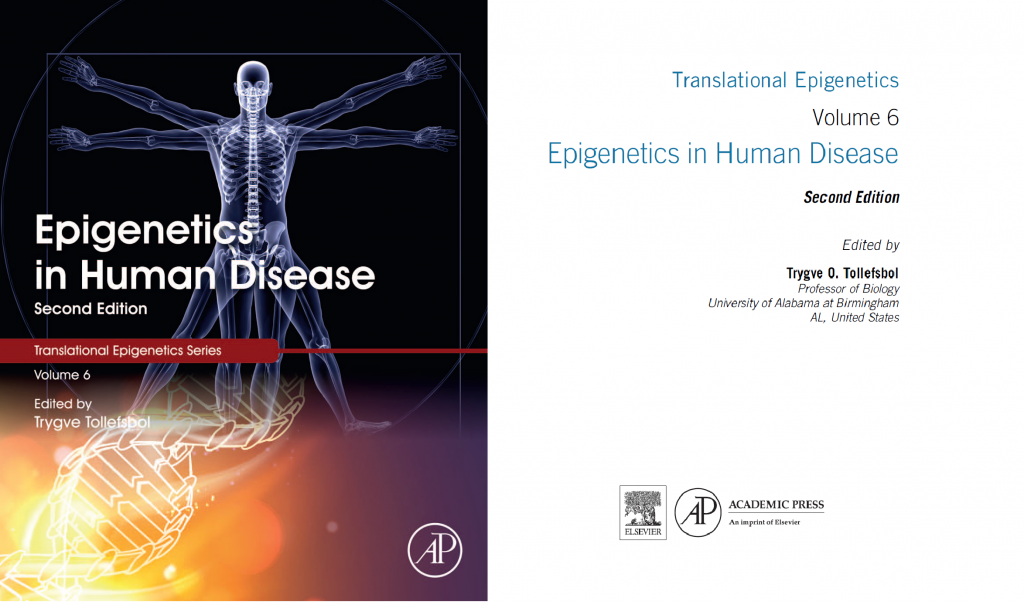Dr. Oleh Lushchak contributed to the collective monograph “Еpigenetics in human disease. Second edition. Translational Epigenetics Series. Volume 6” published by the Academic Press, an imprint of Elsevier. The book is edited by Trygve O. Tollefsbol, Professor of Biology at University of Alabama at Birmingham, United States. Epigenetics in Human Disease, Second edition provides an updated and expanded analysis of the most recent, pertinent and comprehensive information on the role of epigenetics in human disease. The intent of this book is to provide an authoritative treatment of the basic science of epigenetic-based diseases and a clinical perspective covering the most recent advantages in epigenetic therapy. The overall goal of this book is to highlight those diseases or conditions for which we have considerable epigenetic knowledge as well as diseases that are yielding exciting breakthroughs in epigenetics. The book has s strong focus on the translation aspects of epigenetics in disease. Dr. Oleh Lushchak together with his partners, Prof. Olexandr Vaiserman and Dr. Olexandr Koliada are authors of the chapter «Epigenetic Programming of Human Disease and Aging». This chapter describes the importance of epigenetic regulation in process of developmental programming. Currently, modulations of the epigenetic pathways are considered as a key process mediating the early life adverse events with age-related pathological conditions, including T2D, CVD, neurodegenerative diseases, and cancer. Dysregulation of epigenetic pathways in early life might also affect the aging process per se. The role of epigenetic mechanisms in developmental programming of adult-life disease and longevity has been repeatedly reported in various animal models. Human findings are rather limited because of the restricted access to suitable biological materials, but
they clearly demonstrate that these mechanisms can also operate in man. In this chapter, an overview ofrecent research findings in human populations is provided to demonstrate that environmental exposures early in life may program adult health status and aging rate via epigenetic mechanisms.
Dr. Oleh Lushchak contributed to the collective monograph “Еpigenetics in human disease” published by the Academic Press.

